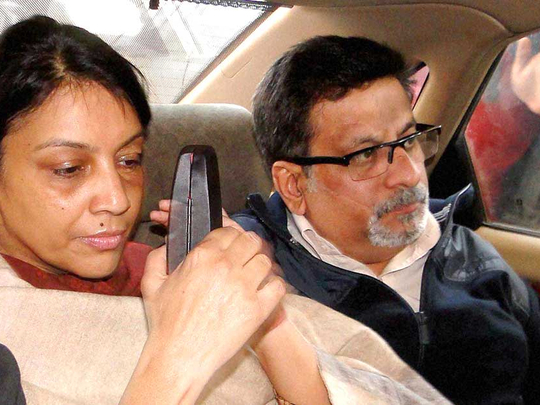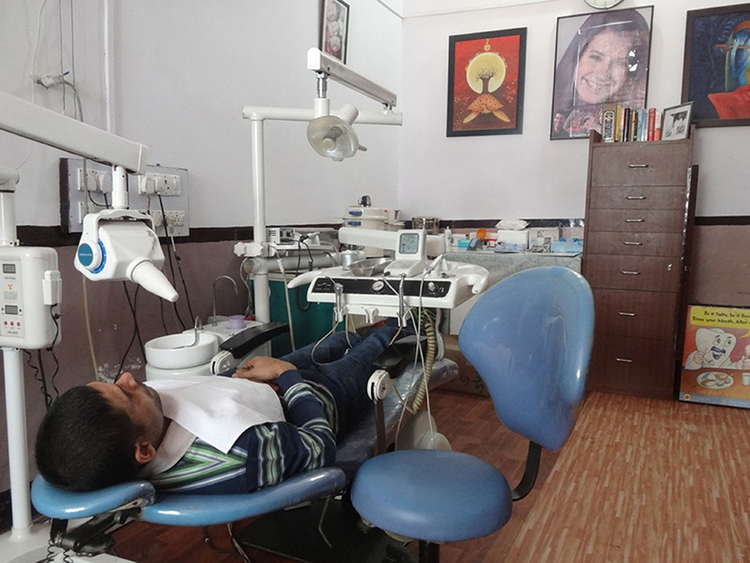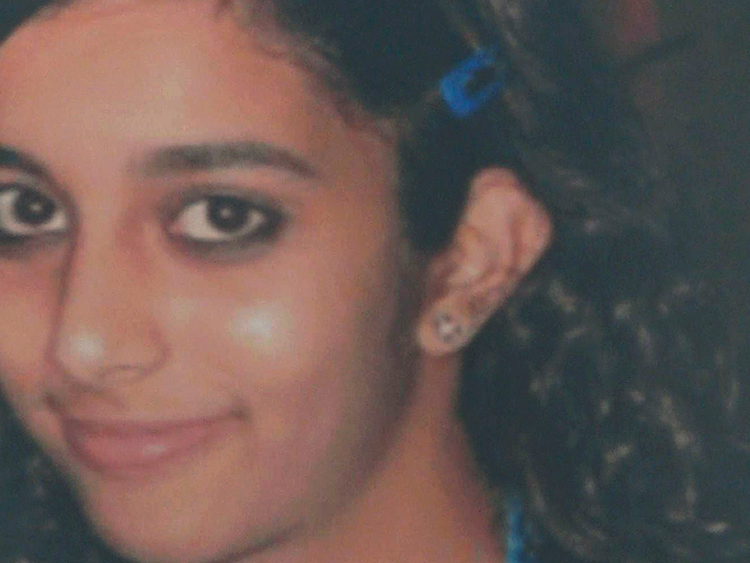
New Delhi: Nupur Talwar, who is serving life sentence along with her husband Rajesh Talwar in the Aarushi murder case, is likely to walk out of Dasna Prison this week after being granted parole by the Allahabad High Court.
She had been out on parole twice earlier — in September and October — to take care of her ailing mother.
The court pronounced the couple guilty on November 23, 2013 of murdering their own daughter.
Their appeal pending before the Allahabad High Court, the dentist couple, meanwhile, live a quiet life at Dasna Prison in Ghaziabad, Uttar Pradesh, about 35km from New Delhi. They eagerly look forward to days when family and friends, who have stood by them, come calling.
As the nightmare continues, hiding the pain of losing their only daughter and living with the stigma of murdering her, the couple is bringing their prison stint to good use by providing succour to prison staff and inmates requiring dental care.
Shiv Prakash Yadav, who took over as Prison Superintendent in May 2014, tolf Gulf News, “During my rounds and discussions with the prison’s medical staff and inmates, I realised the lack of awareness towards oral hygiene and care, which was leading to dental issues. We had rudimentary dental facility, which provided symptomatic relief from pain and that too was attended to by dental students from a nearby dental college once a week.”
While only in some cases, inmates requiring dental treatment were sent to the district hospital, needs of others were largely neglected. Such constraints affected their general health and well being.
Yadav decided to set up a well-equipped dental clinic inside the prison in a 200 square feet area in consultation with the Talwars and senior medical consultant of Dasna, Dr Sunil Tyagi.
The clinic, furnished with modern equipment, enables Rajesh, a prosthodontist, to carry out all sorts of dental procedures five days a week and Nupur, an orthodontist, treats women inmates once a week.
“We ensured that the Talwars were provided with all facilities, which doctors of their calibre deserve for the betterment of inmates. Not only that, even prison officials and other staff, who have to put in long hours of duty, find it convenient for their family and themselves to be treated by them in the vicinity of the prison,” Yadav added.
On an average 20 to 25 patients are treated in the dental OPD between 9am and 12 noon and other lengthy procedures are held later in the day. The practice keeps the Talwar couple occupied; According to the official, the prison inmates never had hostility towards them and, in fact, sympathise with them. Dasna houses several people who have been convicted of crimes they claim they did not commit.
The official said: “Both Nupur and Rajesh are respected and admired for treating patients. Those who have come to know them closely believe in their innocence and most feel injustice has been done in their case. Some inmates get emotional while talking to them and desire to help them in some way or the other.
“The other day, I was pleasantly surprised when someone who didn’t know them, sent a huge carton of books from Mumbai for them. Most times, family and friends carry huge packets of books and both are found engrossed in reading fiction and non-fiction throughout the day.”
Nupur and Rajesh get to meet once a week (on Saturdays) for half-an-hour, during which time they inquire about each other’s well being, discuss about family and relatives and their own case pending before the court. The superintendent added, “I gather they give each other the strength and support to face these extremely difficult times.”
Finicky about clothes, food and lifestyle before the turn of events, life in prison has mellowed down the couple, with Rajesh sharing the cell with a dozen inmates and Nupur with 50 women.
Asked what the Talwars look forward to, Yadav said, “Knowing that truth is on their side and ultimately it has to win, they wait with faith and patience.”
THE MURDER CASE
On a warm summer morning of May 16, 2008, Aarushi Talwar, a week away from her 14th birthday, was found dead with her throat slit open in her apartment at Jalvayu Vihar in Noida, Uttar Pradesh.
A day after the teenager’s murder, the second body, that of Hemraj, the 45-year-old servant of the Talwars, was discovered from the terrace of their house.
Though there was no Hercule Poirot to solve the murder mysteries, within a week, the Uttar Pradesh Police, who had neither cordoned off the murder site nor collected evidence, declared they had cracked the case. The police accused Rajesh for the double murders.
It created furore among the public, leading the court to direct the Central Bureau of Investigation (CBI) to investigate the case. Unable to find any evidence, in December 2010, the CBI sought the court’s permission to close the case. But not before making several insinuations against both Nupur and Rajesh.
The case would have rested there, had the couple reconciled to the fate of losing their daughter. But, as Rajesh had then said, “Finding the CBI’s insinuations appalling, we seek justice for our daughter and challenge the report.” The Talwars asked for a proper investigation with the hope of proving their innocence in court against murder charges.
Finally the couple were declared guilty of the two murders.
Eight years on, the murder case stands faded from media and public memory.
TRIAL BY MEDIA
The Aarushi murder case had been reported by investigative journalist Avirook Sen, who later wrote a book ‘Aarushi’ focusing on the art and science of forensics, trial by media, shoddy analysis and the insidious turns the case took due to the pressure to ‘close’ the case.
Sen laid bare the details of how the CBI, expected to ‘solve’ the murder mystery, instead manipulated and distorted facts. It resorted to unethical means to frame the Talwars of murdering their child. The book provided an insight into the judiciary and its insensitivity towards the couple who stood trial with the hope of finding justice for their daughter, but were let down by the system.
Seemingly, in the case of the Talwars, the lines between fiction and non-fiction began getting blurred, as they fought the case.
As Sen put it, “What is shocking about this case was that daily injustices were being overlooked. The Talwars had lost the battle of perception a long time ago. In the public mind, they were — guilty. What was playing out at the trial seemed almost a formality — just the paperwork for a case that had been settled long ago. That is shocking. And unjust.”














